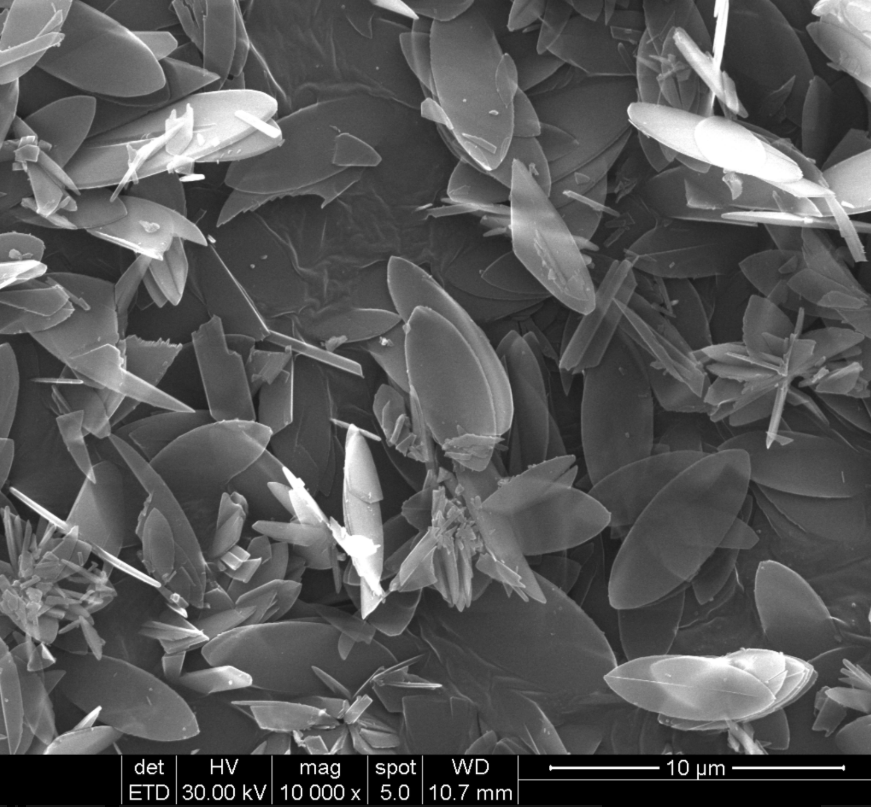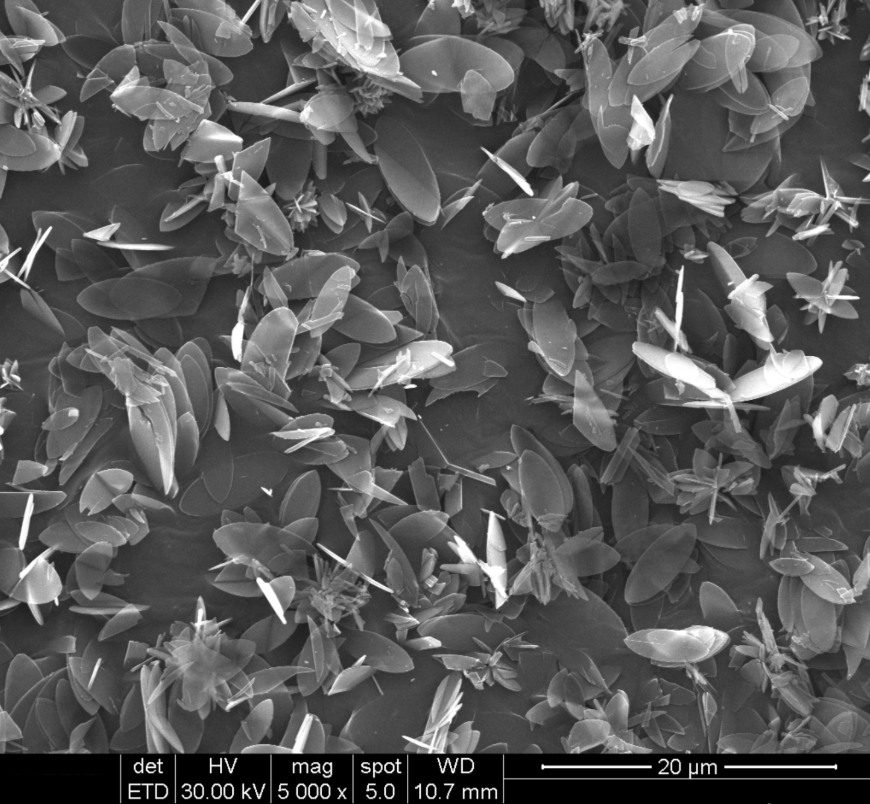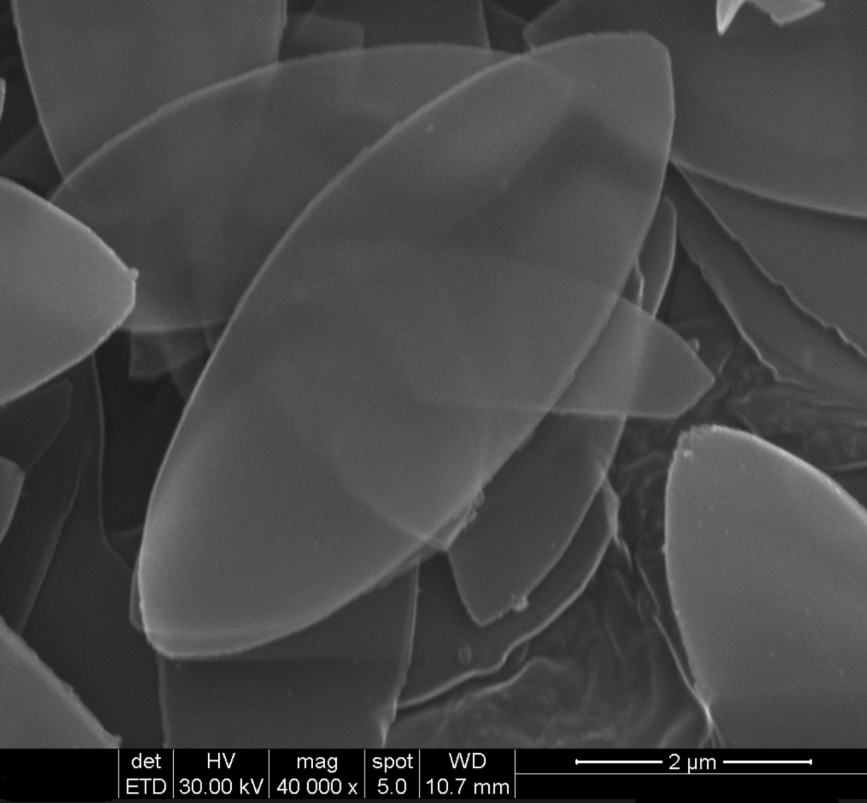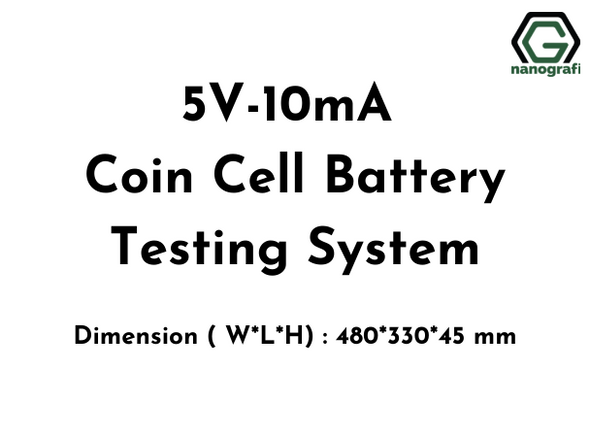Description
1 gram: 95 €
5 grams: 365 €
10 grams: 645 €
Need more than 10 grams? Contact our team for custom bulk pricing tailored to your project!
Zeolitic Imidazolate Framework-L (ZIF-L)
ZIF-L is a two-dimensional zeolitic imidazolate framework (MOF) material composed of zinc ions and 2-methylimidazole linkers. It features a unique layered morphology, high surface area, and excellent chemical stability. The lamellar structure of ZIF-L provides abundant active sites and facilitates rapid mass transfer, making it highly effective in applications such as catalysis, gas adsorption and separation, and environmental remediation. Importantly, ZIF-L serves as a metastable precursor that can transform into the thermodynamically stable ZIF-8 phase, enabling controlled synthesis and morphology tuning. ZIF-L also acts as a versatile precursor for functional nanomaterials used in energy storage and sensing. We offer ZIF-L with high purity and controlled morphology to support advanced research and industrial applications.
Technical Properties
| Empirical Formula | Zn(C₄H₅N₂)₂ | ||
| Color | White | ||
| Elemental Composition | C | O | Zn |
| 0.07 wt% | 7.81 wt% | 2.12 wt% | |
| CAS No | 59061-53-9 |
SEM Images



XRD Analysis

Applications
- Catalysis: ZIF‑L’s lamellar structure provides abundant active sites, making it effective in polymerization, oxidation, and electrocatalytic reactions.
- Gas Separation & Storage: ZIF‑L membranes show enhanced hydrophilicity and stability, improving CO₂/N₂ separation and selective adsorption.
- Environmental Remediation: ZIF‑L is applied in photocatalytic degradation of pollutants and wastewater treatment due to its stability in aqueous environments.
- Energy Storage: ZIF‑L serves as a precursor for ZnO and other nanomaterials, enhancing performance in supercapacitors and microbial fuel cells for oxygen reduction reactions.
- Sensors: ZIF‑L derivatives are explored in electrochemical and gas sensing platforms, offering high sensitivity through layered morphology.
- Biomedical Applications: ZIF‑L’s biocompatibility and porosity support drug delivery and antibacterial activity.








